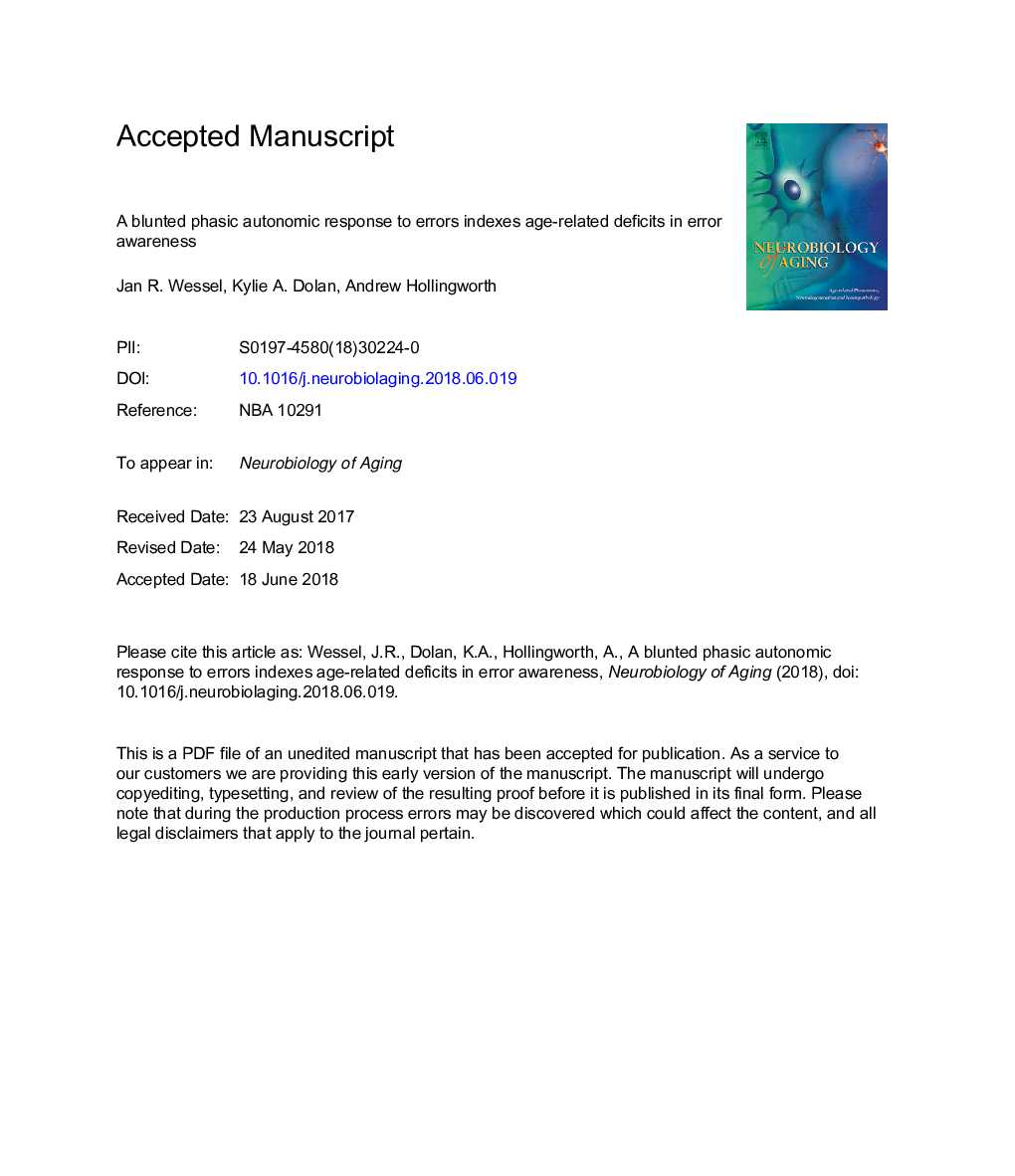| Article ID | Journal | Published Year | Pages | File Type |
|---|---|---|---|---|
| 6802792 | Neurobiology of Aging | 2018 | 34 Pages |
Abstract
Conscious error detection is impaired in older age, yet it is unclear which age-related changes in the nervous system contribute to this deficit. In younger adults, error commission is accompanied by phasic autonomic arousal, which purportedly contributes to conscious error detection. Because aging is associated with declining autonomic reactivity, reduced phasic arousal to errors may therefore contribute to age-related error detection deficits. To test this, we measured pupil dilation in younger (<30Â years) and older (60-80Â years) healthy adults during an eye movement task. The task required a subjective assessment of response accuracy, as well as a “meta-judgment” of the certainty underlying that accuracy-assessment. This allowed for a precise quantification of subjective error awareness. Behaviorally, we found reduced error awareness in older adults. Furthermore, while younger adults showed “residual” awareness of error commission on unreported errors (indicated by decreased rating certainty compared with correct responses), this effect was absent in older adults. Notably, pupil dilation correlated with both measures: between subjects, greater pupil dilation to reported errors was correlated with greater subjective certainty of error detection, and greater pupil dilation to unreported errors was correlated with greater “residual” awareness of unreported errors. In line with this association, older adults showed a reduced pupil response to both reported and unreported errors. Notably, older adults showed no pupil dilation to unreported errors, in line with their lack of “residual” error awareness on such trials. Taken together, our results suggest that reduced autonomic reactivity may contribute to age-related error awareness deficits.
Related Topics
Life Sciences
Biochemistry, Genetics and Molecular Biology
Ageing
Authors
Jan R. Wessel, Kylie A. Dolan, Andrew Hollingworth,
